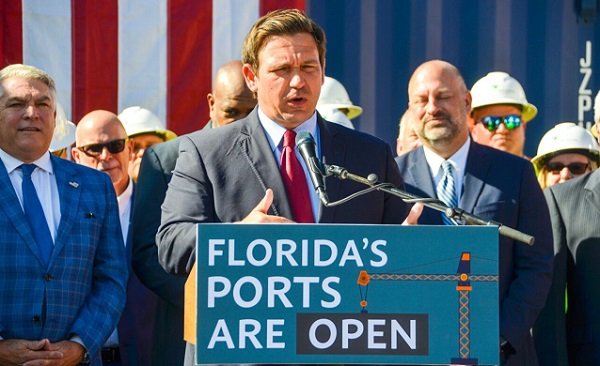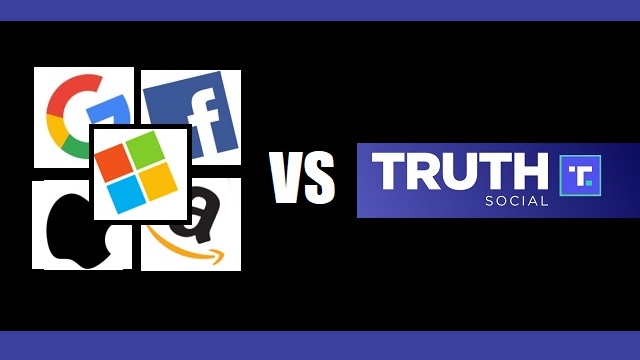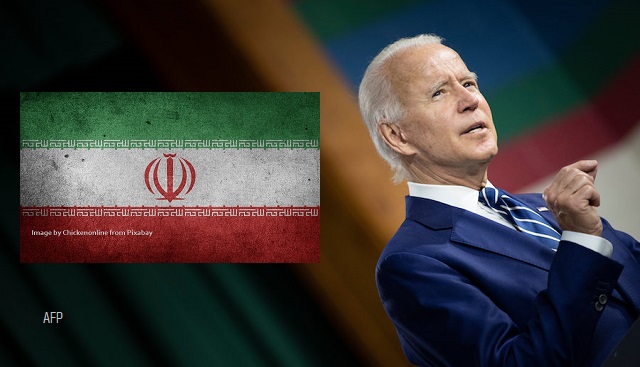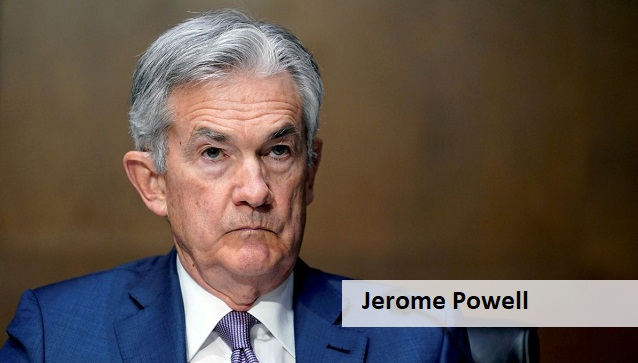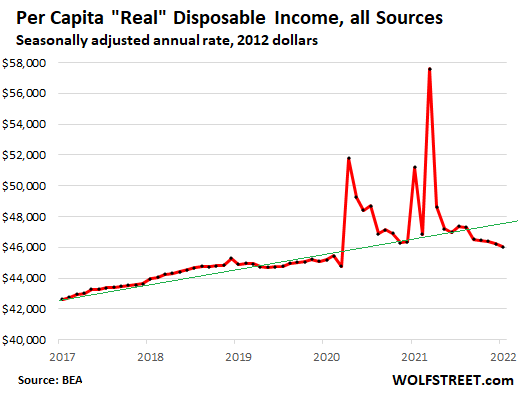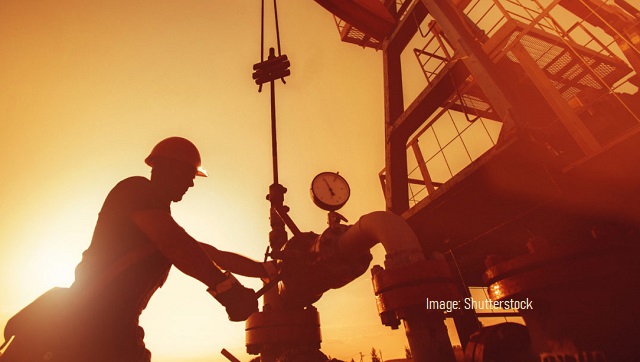The consequences are myriad. Some are quite visible while some are only now becoming evident. Some are intended, and some are unintended. Almost all of them are not good.
Among the more obvious are that war destroys a lot of wealth. Don’t buy for a moment that war spending stimulates economies. The French economist Frederic Bastiat demonstrated more than a century ago with his “Broken Windows” essay, that wartime spending simply diverts money from productive endeavors into things that get blown up. It destroys productive capital, both real and human.
True, it may force demand, but there is a cost down the road for that as well.
War is inflationary. Increased defense spending, while warranted, takes resources from other endeavors. It enlarges already bloated socialist-oriented budgets devoted to social welfare and income redistribution.
Both food and fuel, major components of any consumer-derived price index, are going higher. This is because both combatants in this case produce significant food and fuel. Ukraine is the second-largest country in Europe besides Russia and has been known for years as the breadbasket of Europe. It contributes significantly to the world’s supply of grains.
Can you imagine how the spring planting will be going this year in Ukraine? Higher grain prices will mean of course higher prices for food made from grains, but also for animal feed. Escalating natural gas means higher fertilizer costs. Higher oil prices mean higher transportation costs for food processing and delivery. That applies to crops grown in Brazil, Canada, Argentina… anywhere on the globe. Rising food prices could kill millions in very poor nations. Remember the “Arab Spring” was caused by high food prices.
This food price increase will exacerbate an already difficult inflation problem that must be dealt with by central banks. The tools most effective have been to raise interest rates and reduce the supply of money. As we have pointed out elsewhere, this can have negative effects on investments and borrowing that were undertaken with the expectation that copious flows of money and ultra-cheap money would continue.
Failure to cure inflation has equally serious, perhaps more serious consequences. Inflation impoverishes those on fixed incomes and generally the vast bulk of citizens that are not wealthy. Unchecked inflations have historically led to political strife and often, political revolutions.
Either dealing with inflation or failing to deal with it creates economic pain.
Perhaps the worst response would be wage and price controls. That has been tried many times, even back to Roman times, and it has always failed.
Obviously, increasing the supply of goods of all kinds, especially energy and food would help. Government can help by deregulating and getting out of the way. Drillers and farmers are the ones that must do the job. Central bankers can’t print food or energy.
Blocking rational response to this global food and energy crisis, however, is the fanatical environmental movement, that would rather see millions starve and freeze than allow an increase in the supply of “fossil fuels” or nuclear power. The Green Movement is a quasi-religious supply chain choker. John Kerry worries about the “emissions” created by war. Mr. Kerry, rotting bodies emit methane, a greenhouse gas.
If socialists and Greens would get out of the way, the answer to high prices, is high prices. High prices reduce the incentive to consume and encourage and incentivize production. Rising profits direct capital into production where it is needed the most.
This is how the market works. But we have political opponents of markets who spend most of their days criticizing free enterprise and tying businessmen into bureaucratic knots.
In the State of the Union address, the chief economist of the nation said the cure for inflation is for business to “lower their costs.” What an idiotic statement. How can businesses lower costs when the price of fuel, labor, food, and just about everything else is going up in price? If they eat that difference in their profit margins, they will quickly go out of business. That is not a recipe for creating more supply of things, is it?
One of the least visible economic consequences and one of the most important, of this war is that policymakers are seriously disturbing the existing plumbing of the international banking system.
Let’s be very clear. We favor economic sanctions on Russia for its brutal attack and its wanton disregard for civilian life. What we are saying is that actions being taken may well have serious unintended consequences that are not fully visible at this time. They may be unavoidable but that doesn’t mean they might not have a profound impact in ways that are not evident right now.
For example one of the more stunning moves was the cutting off of access to the central bank of Russia of some $630 billion of foreign reserves. In a brilliant piece in the Wall Street Journal, Jon Sindreu asks a basic and obvious question. If Russian currency reserves are not money, what are they? And if they are not money, we are all in for a real shock.
This question is further expanded upon in a brilliant piece on doomberg.substack.com called On the Cusp of an Economic Singularity. Both are worth reading.
My own take is rather simple.
Put yourself in the position of a central banker. Your job is to provide money and price stability for the home economy, to help your own government manage debt, and to manage financial affairs with other countries. As part of that job, you take bank reserves and invest in other nations’ bonds (typically US treasury bonds), that are held in other banks, with the understanding and expectation that it is your money, that you control it, and you can get it or transfer when you want.
It is sort of like putting your own personal savings in a bank. You expect it to be there, right? You expect you can get to it, right? You expect you can transfer that money to others for goods and services.
What if you woke up in the morning and the government said, we don’t like your politics, so we are seizing your account. Come to think of it, that is just about what the Canadians just did to crackdown on political opponents, the truckers. And it is essentially what the Chinese Communists do in their “social credit” system. They deny economic benefits to those that don’t comply with government edicts.
The international banking equivalent of that has just happened.
Does that mean any balance of payments surplus that you have invested elsewhere can be frozen if you get cross-wise with the Western banking system and its political structure? Yes, it would appear so.
We are sure China is looking very carefully at this development right now.
Understand that the US is a debtor nation. We buy real goods (oil, food, electronics, autos) to a greater degree than we export. We get their goods, and they get our paper, our bonds, our currency. They then invest that paper with the expectation it is their money.
How is this going to continue to work if one side says, we got your oil, thank you, but we have decided because of your behavior, we are not going to pay you. Or the other way to default: we won’t even let you have access to the accumulated funds you have with us.
Banking involves trust. That is true of international banking as well.
One of the reasons gold became the international banking reserve, is because governments have a long history of defrauding their own citizens and other governments. Gold is not a promise to pay. It has no counter-party risk. It can’t default.
What we have just done is show there is a grave risk to holding central bank deposits in the Western Banking system. If we can do it to Russia, can’t we do it to China, Iran, or anyone else?
We have demonstrated what bankers call “counter-party risk.” That is the risk you run when the person or the entity on the other side of a contract fails to pay you. Well, if you seize my deposits, have you not failed to pay me?
We are no longer on a gold standard, although central banks wisely kept some of their gold as bank reserves.
We are on a US dollar standard with the dollar as the “reserve currency” of the world. And that dollar has not been convertible into gold for 50 years and thus is based on a promise to pay. Those promises are held mostly in the form of our treasury bonds, in our currency, so countries with trade surpluses like Japan and China, help finance our debt. We get their goods, they get our debt, and they have to invest that debt, using the international banking system.
So, given the precedent being set here, will that make countries more or less likely to hold their banks’ reserves in the dollar and US bonds? How good are our promises to pay?
The implication of this is that the whole machinery of the post-WWII world, where the dollar is the reserve currency could be undermined. There are two basic questions now: what will nations choose to hold as a reserve asset, and who holds the assets?
Don’t confuse this with moves by Mastercard and Visa. If they don’t want to do business in Russia, they are private companies. If the NBA does not want to do business in China, well that would be surprising. If the My Pillow guy gets snubbed by his bank, he can find another bank. But here we are talking about international institutions established by treaties and traditions among governments. You can’t just go out and find a competing international payments system.
The post-war arrangements were made by the Bretton-Woods Treaty in 1944 and further additions were made along the way. The US dollar became the world’s reserve currency and central banks were encouraged, to hold them.
The French economist Jacques Rueff called this ability to pay both domestic and international debt with printed money “the inordinate privilege.” Only the US has it and it has been a tremendous advantage to us.
All governments can print money to pay their domestic debt, in their own currency. But Argentina cannot print Pesos to pay their international debt that is in dollars. They can print pesos to pay their domestic debt.
Only the US can print money to pay for the both domestic and international debt. Most large commercial transactions are settled in dollars. That is why the dollar is the reserve currency of the world.
That has lowered our financing costs for our huge deficits and enhanced our power. What has just happed is that the post-war economic understanding, and all the financial plumbing that has evolved from that, is now up in the air. Why should a nation hold as a reserve, the promise to pay of a nation that you are at war with? You win the war and lose your money?
Sindreu takes the logical implications of this. It could cause the dollar to lose its reserve status, which would end our exorbitant privilege. At the margin, countries may want to hold far fewer dollars or go so far as to ask for new arrangements. That trend was already in progress. In addition, what good are “reserves” if other countries can freeze them, seize them, or otherwise make them unavailable? Who owns them?
What new system then evolves to finance international trade? What new arrangements will have to be made among central banks so they can deal with each other in a trustworthy fashion? Will we break the world into trading blocs? Will gold make a comeback because it has no default risk or will the Chinese take over international finance?
This problem is not as obvious as the soaring price of wheat, but the subtly of what has just occurred in international finance may be a much bigger story.
It could be this is a one-off event. But recent history says otherwise. Increasingly we have seen “progressive” politicians use the monetary equivalent of cancel culture. Get the banks to quit funding gun manufacturers. Force banks to lend for green initiatives and deny credit to oil companies. Take deposits in Go Fund Me, and then try to redirect that money away from Canadian truckers. Seize the yachts of private Russian “oligarchs”. In short, use the financial system to force your political will on others. Now the great leap: we are using the international banking and payments system.
In a previous piece, we have warned that governments will likely go after cryptocurrencies. Now it seems cryptocurrencies may go after governments or at least the citizens of those governments. As we write crypto exchanges are freezing 25, 000 Russian accounts. Again, what do you hold as an asset, and who is holding the asset? With this latest move, how good are cryptocurrencies?
The trouble with extending this “controlling” notion to international finance is other powerful governments don’t want the U.S. to rule over them and we are the debtor nation. That is why they are sovereign countries. Some like China, are much more powerful than Russia. But they have seen what has happened and likely are aware of its implications. They may want to pull out of existing international banking arrangements.
Yes, make life difficult for Mr. Putin. Just be careful you don’t blow off your own economic legs in the process.



